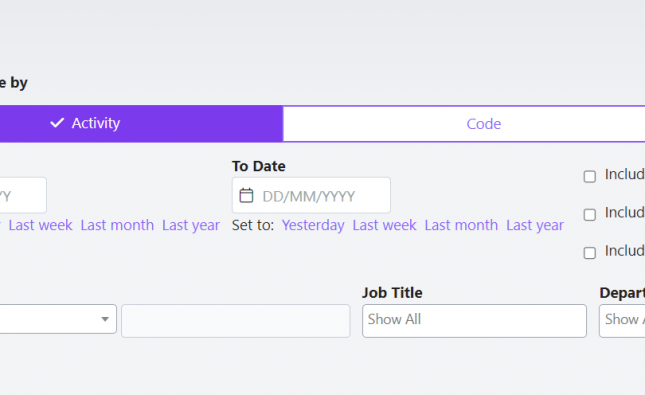As human beings, we are conditioned to think and assume based on what we think we know, sometimes leading us to act with unconscious bias. Bias is usually based on our perceptions inherited through our kith and kin, influenced through what we watch in the media (news, TV and film) and sometimes based on our own experiences with other people.
The problem is when unconscious bias affects our perception of another person or groups of people in a professional work environment, it impairs our ability to act fairly and make the right decisions. We believe it is detrimental for individuals but it’s also bad for the business and workplace culture. After all, who wants to work in an unhappy environment or buy products or services from a business with a reputation of being biased?
So, what do we mean by unconscious bias, how does it affect your business and what can you do to reduce its impact in the workplace?
What is Unconscious Bias?
Unconscious bias enables us to make assumptions about others. It is a bias triggered by our brain making quick judgements and assessments of people and situations, influenced by our background, personal experiences, societal stereotypes and cultural environment.
Unconscious bias can be categorised as follows:
- Visual bias: Making assumptions about a person based on how we view them judging by their appearance, the way they dress, etc. This bias is more commonly understood as stereotyping and is sometimes based on gender and/or age.
- Cultural or social bias: Classifying people based on their culture or social status such as religion, social class, accent, job title etc. This sort of bias can cause exclusion in the workplace and give rise to groupism.
- Experience bias: Biases ingrained from personal experiences and based on our values, morals and beliefs.
Having preconceived thoughts about people before getting to know them are likely to affect your working relationships with colleagues as well as customers.
Impact of Unconscious Bias
Unconscious bias may affect personal conduct and decision-making at work. There is evidence to suggest that unconscious bias seeps into decisions that affect hiring practices and workplace conduct in ways that can disadvantage certain groups of people. It can cause you to:
- Treat colleagues and customers with prejudice;
- Behave with discrimination or favouritism when it comes to performance reviews or promotions;
- Miss out on retaining or hiring talented and dedicated employees.
For those individuals at the receiving end of biased behaviour, it can lead to stress in the workplace, affecting productivity, performance and morale. A recent survey reveals that the key cause of stress and mental ill-health at work is often down to poor treatment, including bias and discrimination.
The biggest impact, however, is on customers and how they view your business. As individuals, we are becoming more conscious of our buying behaviour and how it impacts our surroundings and environment, for example working with ethical suppliers. Therefore, customers are less likely to associate with businesses that have a poor reputation for biased behaviour or treating others less favourably.
Combating Unconscious Bias in the Workplace
You can reduce the impact of unconscious bias by recognising the signs and making a conscious effort to act fairly rather than acting on what you assume. Here are some helpful tips on tackling unconscious bias in the workplace:
- Set the tone across the business: Starting from the top, ensure that you are adopting zero tolerance to biased practices such as discrimination, prejudice and inequality, and promoting fairness and respect in the workplace. Having a Code of Conduct policy will ensure that you are driving the message across the business and aligning your staff with organisational values.
- Recognise and act: By becoming conscious of your biases, you can actively work at reducing them. The most important step is to recognise which areas of your business are exhibiting unconscious bias and act to change those behaviours. Develop a transparent and fair process for raising concerns and encourage staff to speak out confidentially.
- Challenge the stereotypes: Educate your employees with training programs on equality and diversity in the workplace. Empower individuals to seek out opportunities to interact with people outside their normal social circle. Positive experiences that contradict stereotypes are known to help override biases and potentially eliminate them.
- Empathise with those around you: Treat others the way you would like to be treated. Consider how you would feel if someone made decisions about you based solely on preconceived notions and assumptions.
We live in times when conversations around equality and diversity are more frank and transparent than ever. Whether we would like to admit it or not, we may have been guilty of unconscious bias at some point in our lives. What’s important is that we acknowledge our biases and work towards changing perceptions. We need to ensure that we are acting fairly towards one another and reducing the impact of unconscious bias while working with colleagues and customers.


